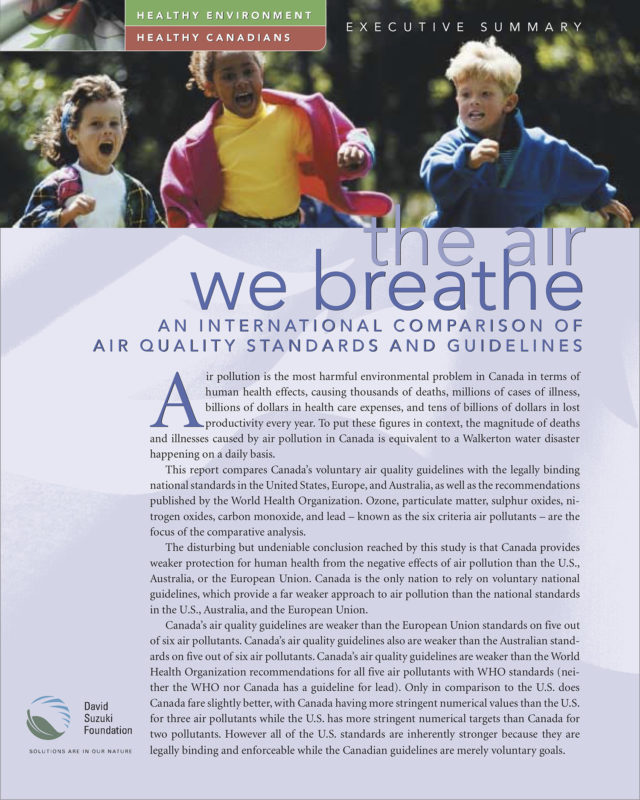EXECUTIVE SUMMARY — The Air We Breathe: An International Comparison of Air Quality Standards and Guidelines
Published by:
David Suzuki Foundation
Environmental rights, Cities chemicals and toxins, human health and wellbeing, policy and regulation
It’s free, it’s all around us, and we can’t live without it for more than a few minutes. The air we breathe is essential to human life, yet we often take it for granted, especially here in Canada. Air pollution is a significant environmental health problem. In Canada alone, it is responsible for causing thousands of deaths, millions of cases of illness, billions of dollars in health care expenses and tens of billions of dollars in lost productivity every year.
This is the executive summary of a report in which the David Suzuki Foundation found that Canada provides weaker protection for human health from air pollution than the United States, Australia and the European Union, as well as the recommendations published by the World Health Organization. Significantly, Canada is the only nation to rely on voluntary national guidelines, which provide a far weaker approach to controlling air pollution than the enforceable standards in place elsewhere. The report, which is part of the Healthy Environment, Healthy Canadians series, focuses on ozone, particulate matter, sulphur oxides, nitrogen oxides, carbon monoxide and lead. It also includes five key recommendations for improving the health and well-being of Canadians and reducing the negative health impacts of air pollution.
